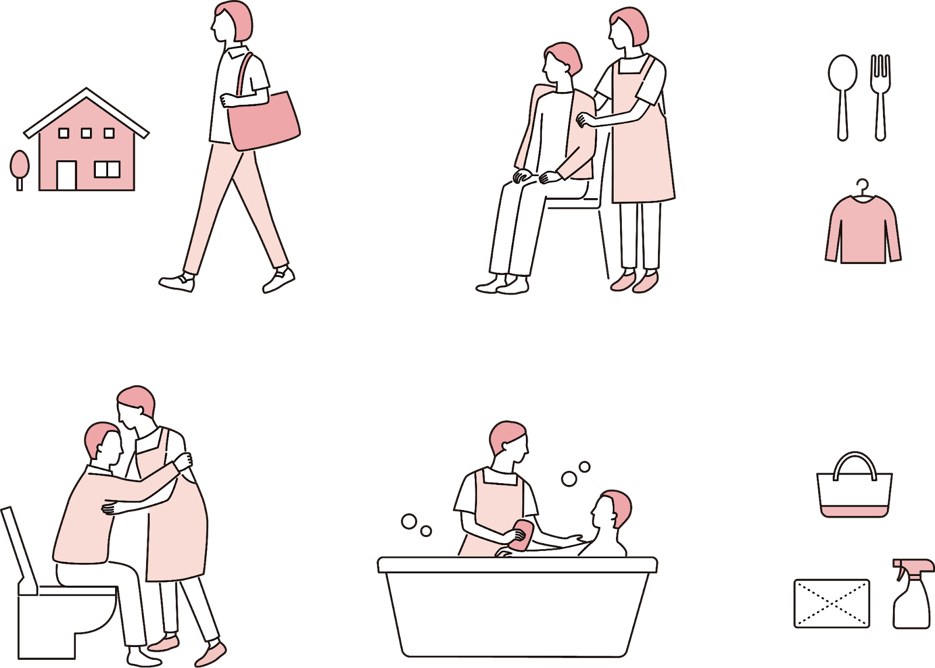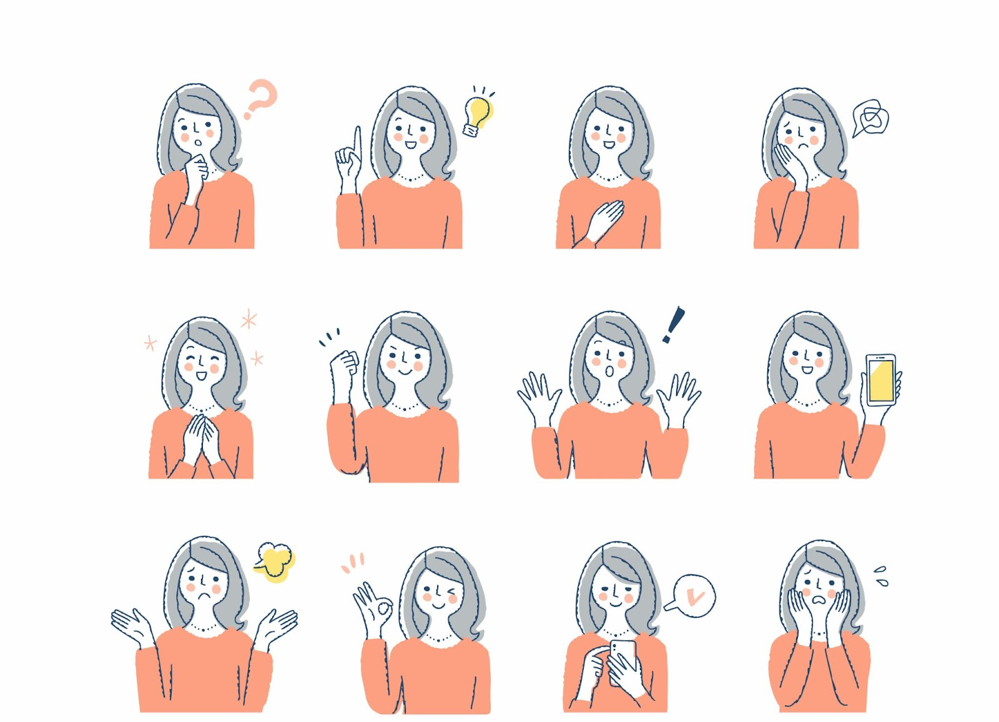
September 16, 2025
Where Does Job Satisfaction Come From?
Tips for Finding Meaning in Your Work -- From My Experience as a Nurse
Where do you find meaning and fulfillment in your work?
For craftsmen dedicated to creating things, some may feel a strong sense of satisfaction when they complete a product that exceeds their own expectations or when the companies they deliver to express their appreciation. On the other hand, there may be those who struggle with feeling a lack of fulfillment in their jobs.
I used to work as a nurse, both in hospitals and in home care. Many nurses say they feel rewarded when they can emotionally support patients going through difficult times or when they see someone recover and leave the hospital. I've experienced that too. But as I continued working, I discovered a different kind of satisfaction--something I hadn't expected at all.
That was: cleaning a patient's skin and making it feel fresh.
If you're someone who feels disconnected from your work right now, perhaps you, too, might find fulfillment in an unexpected place.

The Unexpected Joy of Cleaning Someone's Skin
I used to work in home-visit bathing care. After graduating from nursing school, I got a job at a large general hospital. But I quickly realized the environment wasn't a good fit for me and resigned. Later, a friend introduced me to a care service company, and I started working in home bathing care.
At the time, I thought, "As long as I can keep doing nursing, that's fine." I wasn't particularly interested in other jobs, and since I had worked so hard to earn my nursing license, I felt I had to use it. To be honest, I didn't have any strong sense of purpose when I started the new job. I didn't even know what home-visit bathing care involved.
In this role, a nurse's main responsibility is to assess whether a patient can safely take a bath that day. We check vital signs like temperature and blood pressure, observe overall health, and ask family members if they've noticed any changes. We also help with undressing, bathing, and getting dressed again.
What surprised me was how many patients genuinely looked forward to bath day more than I had imagined. They often said things like, "I've been looking forward to my bath today." Families would tell me, "They've been asking since morning when the bathing service will arrive."
Most of our clients were bedridden and rarely had the chance to bathe. Some could only manage to wipe their body with a warm towel or soak their feet occasionally. While these methods do help maintain a basic level of hygiene, they're no substitute for a full bath. Perhaps part of the reason so many people love bathing is rooted in Japanese culture, with its tradition of soaking in the tub and abundant hot springs across the country.
Now, hearing this, you might think nursing or caregiving is "a job that helps people" or "a work full of fulfillment," but the reality is a bit more complicated. When people can't bathe often, their skin becomes dirty. Dead skin and oils accumulate, sometimes to the point where the grime hardens and won't come off in a single bath. This part of the job might make some people think, "I could never do that kind of work." But strangely enough, I found a deep sense of satisfaction in this very task--helping clean someone's skin as a nurse.

A Turning Point: The Man Who Hadn't Bathed in Five Years
Among all the patients I've cared for, one man stood out--he hadn't bathed in five years. He was a large-framed man, and helping someone of his size was physically demanding. Even trained caregivers find this challenging, so it's no surprise that his family struggled with it. After he became bedridden, his family tried to help him bathe, but he refused again and again. Instead, they used warm towels to wipe him down as best they could. Still, they never gave up on trying to convince him, and eventually, he reluctantly agreed to try home-visit bathing care.
I'll admit I was nervous on the first visit --worried he might resist or become agitated. But to my surprise, he cooperated smoothly and allowed us to help him bathe. That relief quickly turned into shock when he undressed.
His skin was completely covered in dark, thick grime--hardened and crusted like the skin of an elephant. I thought to myself, "How are we going to clean this?" My colleague and I were stunned for a moment. But there was no turning back. We picked up our towels and soap and got to work.
Little by little, the dirt softened and began to come off, revealing clean skin underneath. I'd never seen anything like it. Watching the transformation unfold felt strangely moving.
In home-visit bathing care, we operate on a set schedule to minimize physical strain on the patient. So, we couldn't finish cleaning everything on one visit. We decided to continue over the following weeks.
Gradually, week by week, his skin grew cleaner. The man himself didn't seem particularly interested, but his family was incredibly grateful. "Thank you so much," they said repeatedly.
It was a powerful experience--and it changed how I felt about my work. From that point on, "helping clean someone's skin" became one of the most rewarding parts of my job.

Fulfillment Can Be Found Where You Least Expect It
When I first became a nurse, I never imagined that cleaning someone's skin could bring me a sense of purpose. But it happened--by chance--through one unforgettable encounter with a patient.
You never know what part of your job might become meaningful to you. Sometimes, even if you're actively searching for purpose, you can't find it. Other times, it looks nothing like what you originally imagined. Something that once gave you satisfaction might lose its shine over time. And something others would avoid might unexpectedly become your source of joy.
So, if you're currently thinking, "I don't feel any sense of purpose in my job," or even, "What does job satisfaction mean, anyway?", please don't rush or feel pressured. I believe that job satisfaction can suddenly appear right in front of you as you steadily engage in your daily role. And ultimately, what matters is that you personally feel that fulfillment--it doesn't have to be the same as anyone else's.
Suzuka Asano
Freelance writer. After working as a nurse, she transitioned into writing, using her medical and caregiving experience to create content focused on healthcare, elder care, and social issues. She is also active in nonprofit work related to community support.


